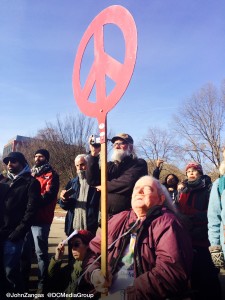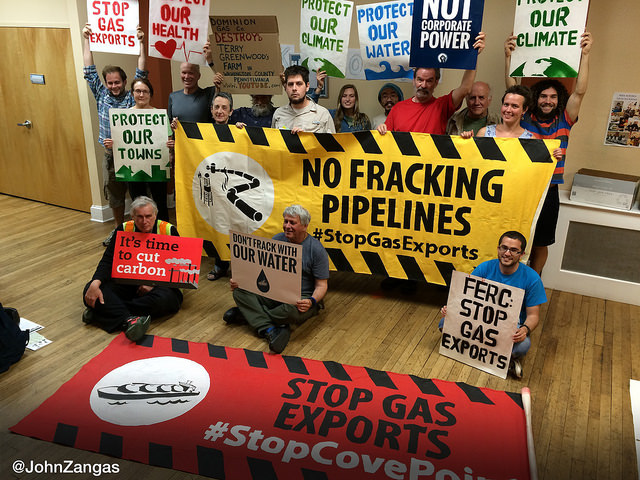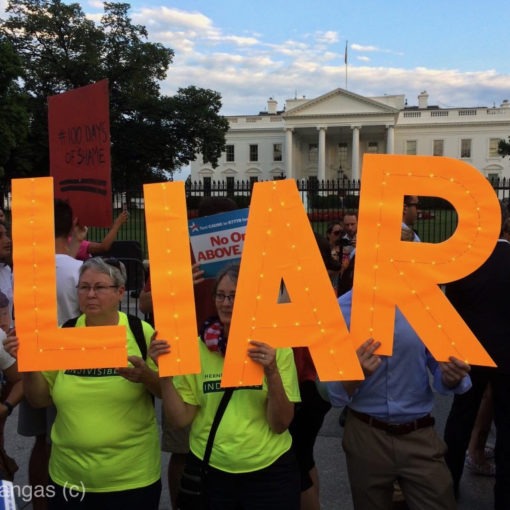 On March 20th over fifty groups will gather in Washington, DC to call for an end to U.S. involvement with the continuing conflict in the Middle East. “Spring Rising” will present teachings all day Friday, March 20th at University of DC Law Center. The next day, anti-war actions will mark the 12th anniversary of the U.S. led invasion of Iraq to oust Saddam Hussein, with a 12 Noon rally on Saturday at the White House and 1 pm march to the U.S. Capitol.
On March 20th over fifty groups will gather in Washington, DC to call for an end to U.S. involvement with the continuing conflict in the Middle East. “Spring Rising” will present teachings all day Friday, March 20th at University of DC Law Center. The next day, anti-war actions will mark the 12th anniversary of the U.S. led invasion of Iraq to oust Saddam Hussein, with a 12 Noon rally on Saturday at the White House and 1 pm march to the U.S. Capitol.
Advocates will convene panels about the economic and environmental costs of “endless war” in Iraq, Syria, Afghanistan, Yemen and throughout Africa. Panels will be live-streamed.
For years anti-war activists have been calling for cuts in runaway military spending. The U.S. allocates nearly $650 billion annually on its military, more than the next eight countries combined. China, the next highest spender, allocates roughly $190 billion annually, less than 25% of the U.S.
There are several key reasons the U.S. is foremost in the war export industry. Author David Swanson, co-founder of WarIsACrime.org cited several powerful forces as major driving factors. Profit driven military hardware corporations with an effective lobby, coupled with media propaganda to promote a culture that accepts war, are primary contributors according to Swanson.
Military spending ultimately degrades the environment, an issue most often over-looked, says Debra Sweet, Director of The World Can’t Wait. ”Weapons and oil are huge sections of the economy, both related to destruction of the global environment,” she said. Sweet also cited the U.S. military as the “biggest single user” of fossil fuel.
Robert Fantina, an author and speaker on Middle Eastern affairs, said the U.S. led Iraq war ravaged Iraq’s environment. “The U.S. use of depleted uranium in Iraq has rendered huge areas uninhabitable for millions of years,” he said.
Fantina also cited the effects on ecosystems. “The manufacture of weaponry spews untold amounts of pollutants into the air [and] accelerates the man-made changes to the climate,” he said.
Another panel topic involves the decreasing security of nations as an outcome of the wars sweeping the Middle East. Militarism is having an opposite affect on security said Fantina. “U.S. militarism causes untold hostility towards the U.S. throughout the world, thus reducing U.S. security,” he said. “Spring Rising is both a call to action, and the start of publicizing how war and militarism do not, as people are constantly told, make us safer,” said Fantina. He will speak about security Friday.
Swanson sees Spring Rising as creating a discussion about ongoing wars in the Middle East. “I hope we can inspire others to spread the word between various types of war or between the false options of war,” said Swanson.
Another goal of Spring Rising is to tell the international community there is plenty of opposition to U.S. sponsored conflicts. “It’s very important to send a message to the rest of the world that there are people in this country who care about humanity and the planet above all,” she said.
“International organizations are gathering to pool their strength, to let the world know that war is not inevitable,” said Fantina.
Panels for Spring Rising will be held Friday, March 20th at UDC Law school 11 am – 9 pm. A rally will be held at the White House in Lafayette Square, 12 Noon, Saturday, March 21st, with a march to the U.S. Capitol at 1:00 pm.





